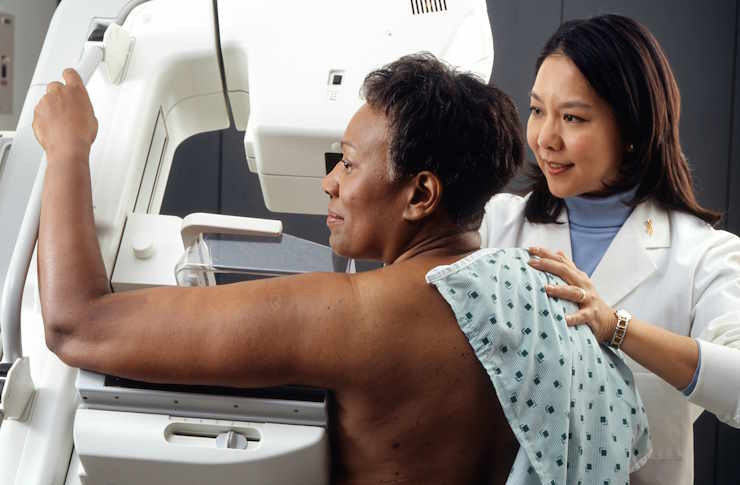5 Commonly Overlooked Warning Signs of Colon Cancer
Colon cancer, also known as colorectal cancer, often presents with subtle symptoms that can be easily overlooked. Recognizing these warning signs is crucial for early detection and effective treatment. Here are five key indicators to be aware of colon cancer:

What changes in bowel habits could signal colon cancer?
Changes in bowel habits are often one of the earliest signs of colon cancer. These changes can manifest in various ways, including:
-
Persistent diarrhea or constipation
-
Alternating between diarrhea and constipation
-
Narrowing of stools
-
Feeling like you can’t empty your bowels completely
-
Increased frequency or urgency of bowel movements
It’s important to note that occasional changes in bowel habits are normal and can be caused by diet, stress, or other factors. However, if these changes persist for more than a few weeks, it’s advisable to consult a healthcare professional.
Why is rectal bleeding or blood in stool a cause for concern?
Rectal bleeding or blood in the stool is a symptom that should never be ignored. While it can be caused by benign conditions such as hemorrhoids or anal fissures, it can also be an indicator of colon cancer. The blood may appear:
-
Bright red
-
Dark red
-
Black and tarry (indicating bleeding higher up in the digestive tract)
Even if you only notice a small amount of blood, it’s crucial to have it evaluated by a doctor. In some cases, the bleeding may not be visible to the naked eye but can be detected through a fecal occult blood test.
How does unexplained weight loss relate to colon cancer?
Unexplained weight loss, particularly when it occurs without changes in diet or exercise habits, can be a sign of various health issues, including colon cancer. This weight loss may occur due to:
-
Cancer cells using up the body’s energy resources
-
Loss of appetite
-
Difficulty absorbing nutrients due to the tumor’s effects on the digestive system
If you experience a loss of 10 pounds or more without trying, it’s important to consult your healthcare provider. While weight loss can be attributed to many factors, ruling out serious conditions like colon cancer is essential.
What types of persistent abdominal discomfort might indicate colon cancer?
Persistent abdominal discomfort can be a sign of colon cancer, especially if it lasts for more than a few days. This discomfort may present as:
-
Cramps
-
Gas
-
Pain
-
A feeling of fullness or bloating
It’s important to differentiate between occasional digestive issues and persistent discomfort. If you experience ongoing abdominal pain or discomfort that doesn’t improve with over-the-counter remedies, it’s crucial to seek medical attention.
When should weakness or fatigue be considered a potential sign of colon cancer?
Weakness and fatigue are common symptoms that can be attributed to many conditions, including colon cancer. In the context of colon cancer, these symptoms may occur due to:
-
Internal bleeding leading to anemia
-
The body’s immune response to the cancer
-
The cancer’s impact on nutrient absorption
While everyone experiences tiredness from time to time, persistent fatigue that interferes with daily activities and doesn’t improve with rest should be evaluated by a healthcare professional.
Understanding Colon Cancer Treatment Options
When colon cancer is detected, various treatment options are available depending on the stage and location of the cancer. Common treatments include:
-
Surgery to remove the tumor and affected lymph nodes
-
Chemotherapy to kill cancer cells
-
Radiation therapy to shrink tumors
-
Targeted therapy to attack specific cancer cells
-
Immunotherapy to boost the body’s natural defenses against cancer
The choice of treatment depends on individual factors and is typically decided in consultation with a team of medical professionals.
| Treatment Type | Description | Typical Duration | Potential Side Effects |
|---|---|---|---|
| Surgery | Removal of tumor and surrounding tissue | 2-4 hours (procedure), 1-2 weeks (hospital stay) | Pain, infection risk, temporary bowel changes |
| Chemotherapy | Drug treatment to kill cancer cells | 3-6 months (cycles) | Nausea, hair loss, fatigue, increased infection risk |
| Radiation Therapy | High-energy rays to destroy cancer cells | 5-8 weeks (daily treatments) | Skin irritation, fatigue, diarrhea |
| Targeted Therapy | Drugs that target specific cancer traits | Ongoing until ineffective or intolerable | Skin problems, high blood pressure, bleeding |
| Immunotherapy | Boosts immune system to fight cancer | Varies, often long-term | Flu-like symptoms, fatigue, skin reactions |
Prices, rates, or cost estimates mentioned in this article are based on the latest available information but may change over time. Independent research is advised before making financial decisions.
Colon cancer is a serious condition, but early detection significantly improves treatment outcomes. Being aware of these commonly overlooked warning signs can lead to earlier diagnosis and more effective treatment. If you experience any of these symptoms persistently, it’s crucial to consult with a healthcare professional for proper evaluation and guidance.
This article is for informational purposes only and should not be considered medical advice. Please consult a qualified healthcare professional for personalized guidance and treatment.




